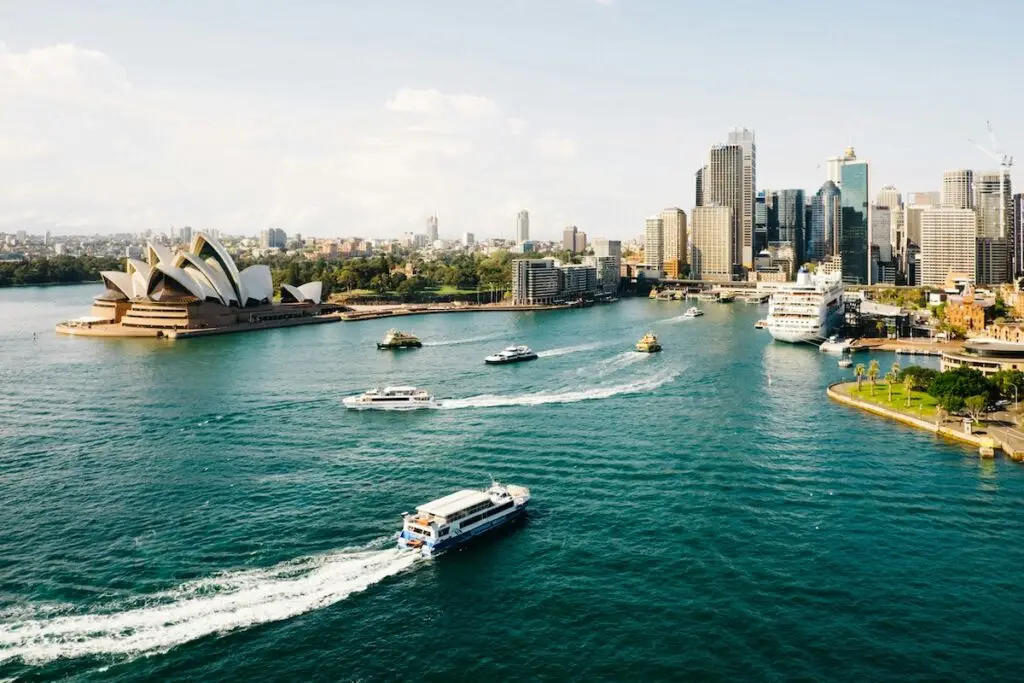Last updated: 27 August 2024
With the ever-changing international education landscape, it’s important to stay updated on the latest visa and immigration news of key study-abroad destinations. This guide details visa updates for international students in Asia-Pacific, particularly Australia and New Zealand.
Australia
In most cases, international students in Australia must obtain a Subclass 500 Student visa. With this visa, students can participate in an eligible course of study in Australia for up to five years, depending on their program.
Validity
The Subclass 500 Student visa is a temporary visa. It allows international students to study in Australia for up to five years. The type of course and its length that the student is enrolled in shall determine the length of their stay. Visa holders can only remain in the country until the date given on their permit.
The Australian Student visa can’t be extended. If the student wishes to continue studying in Australia, they must apply for a new Student visa. If they want to stay longer without studying, they must apply for another visa that’s relevant to their new purpose of staying.
Cost
The cost of a Subclass 500 Student visa is AU$1,600 for the main applicant unless they’re exempt. Each family member who applies for the visa shall also be charged. The applicants also shoulder any other costs for health checks, police certificates and biometrics, along with other requirements.
Eligibility
In order to apply for a Subclass 500 Student visa, the applicant must:
- be a certain age (at least six years old)
- be enrolled in a course of study and provide evidence
- meet English language requirements
- have adequate health insurance
- have enough money (at least AU$29,710) for their stay
- be a Genuine Student
- meet Australia’s character requirement
- meet Australia’s health requirement
- sign the Australian values statement
- have no debts to the Australian government
- have not had a visa cancelled or an application refused (from Australia or another country).
Additionally, if the applicant is under 18 years old, they must make welfare arrangements. If the Australian government deems that studying in Australia is not in the best interests of an applicant below 18, they may not grant the visa.
Work limitations
Australian Student visa holders and their family members can work up to 48 hours a fortnight when their course of study or training is in session. Those pursuing a Master’s degree by research or a Doctoral degree, however, may work more than 48 hours a fortnight. Subclass 500 Student visa holders can only pursue such employment after they’ve started their studies.
Bringing family
The Subclass 500 Student visa allows applicants to include family members when they lodge their application. Their family member must be either their partner or their partner’s unmarried dependent child and below 18 years of age.
Family members must be declared in the student’s visa application even if they don’t plan to travel with the applicant to Australia. Otherwise, they may not be eligible for a student visa should they decide to go with the student later on.
How to apply
Applicants can apply for a Subclass 500 Student visa in or outside Australia. But if they do so in the country, they must hold an eligible substantive visa. Note that Temporary Graduate, Visitor and Maritime crew visa holders who are in the country can’t apply for a Student or a Student Guardian visa onshore.
Here’s a step-by-step guide on how to apply for an Australian Student visa:
- Gather the necessary documents listed on the Australian Department of Home Affairs website. The requirements differ based on the applicant’s passport and education provider. These may include identity information, confirmation letters, Genuine Student documents, English language proficiency certificates and proof of financial capacity.
- Apply for the visa online. Students must ensure their application is complete and decision-ready, otherwise they may experience delays.
- Comply with any additional requirements (e.g. requests for further information) requested.
- Await the visa decision. Approved applicants shall receive a visa grant number, an expiration date and guidelines of their visa conditions.
Latest visa news in Australia
- Australia announces 270k cap on international enrolments – 27 August 2024
- Australia implements immediate increase in student visa application fees – 1 July 2024
- Australia confirms plan to cap international student enrolments – 18 June 2024
- Australia moves to end ‘visa hopping’ – 13 June 2024
- Australia reverses age limit for post-higher education work streams – 30 May 2024
- Australian universities nearing overseas enrolment caps – 28 May 2024
- Australia releases new strategy to strengthen international education sector – 28 May 2024
- New budget supports a better and fairer education system for a future made in Australia – 21 May 2024
- The closure of Australia’s Pandemic Event visa – 14 September 2023
- Australia reintroduces allowable working hours for international students – 5 July 2023
New Zealand
The most common type of visa applicable for international students in New Zealand is the Fee Paying Student Visa. This allows the applicant to study full-time in the country for up to four years.
Validity
A Fee Paying Student Visa is valid for up to four years. The specific period of time that it shall be granted to the applicant, however, normally depends on the duration of the course that they have enrolled in.
Visa expiry dates are printed on a visa label or included in the student’s visa letter. If their passport is due to expire, their visa will expire before this date. So the student must renew their passport and apply for either a new student visa or have the ‘balance’ of their existing visa transferred to their new passport if they want to continue studying.
Cost
The cost of a Fee Paying Student Visa varies based on the applicant’s passport and location during application. The fee starts at NZ$375.
Eligibility
To be eligible for a New Zealand Student Visa, the applicant must:
- provide proof of their identity
- be in good health
- be of good character
- genuinely intend to meet the conditions of their visa
- have an offer of place from an approved education provider
- have enough money to pay their tuition fees
- have full medical and travel insurance covering the length of their stay
- be able to show that they’re passing their course and meeting attendance requirements
- have enough money to live on while they’re in New Zealand (NZ$20,000 per year of tertiary, English language or other non-compulsory school study, or $1,667 per month if study will be shorter than one year)
- have a ticket to leave New Zealand or enough funds to purchase one, or be sponsored for the cost of their onward travel
- provide information about holidays and their course.
Applicants nine years old or under must be accompanied by a parent or legal guardian unless they will live in an NZQA-approved school hostel. Those aged 16 or 17 (or in years 12 or 13 of secondary school) must present written permission to work.
If the applicant is required to do practical work experience as part of their program, they must also provide evidence that it’s a requirement.
Work limitations
International students in New Zealand may be able to work while on a student visa. The eVisa or visa sticker in their passport will detail the conditions and limitations of their employment.
Tertiary students can work part-time (up to 20 hours a week) during semesters and full-time during the holidays. Master’s by research or PhD students, on the other hand, may work as many hours as they like.
International students aren’t allowed to be self-employed. They must work for an employer and have an employment agreement.
Bringing family
International students can bring their partner or children as they study in New Zealand. Family members can apply for visas based on their relationship with the main applicant.
How to apply
International students can apply for a Fee Paying Student Visa online or using a printed form. They must submit their application at least eight weeks before they plan to arrive in New Zealand. Here’s a step-by-step guide on how to apply for a New Zealand Student Visa:
- Gather supporting documents.
- Pay the necessary application fees.
- Apply for the visa online or using a printed form.
- Submit the application. If the student is applying online, they may need to send their passport to Immigration New Zealand (INZ). Otherwise, the student must submit their physical application to a designated office.
- Await a decision. Most applications are processed in a month.
- If necessary, submit additional information to INZ as requested.
Latest visa news in New Zealand
- ENZ targets to grow international education to $4.4 billion by 2027 – 8 August 2024
- Partners of Green List students in New Zealand can now apply for work visas – 11 July 2024
- New Zealand records a 20% increase in student visa applications for 2024 – 30 April 2024
- New Zealand reports 43% surge in international student enrolments – 2 April 2024
- Immigration New Zealand now accepts IELTS One Skill Retake – 9 January 2024
We constantly update this page as changes occur concerning student visa and immigration rules in Asia-Pacific. Bookmark this page to stay in the loop or keep an eye out on our Newsroom for the latest information.




